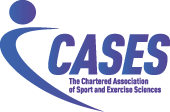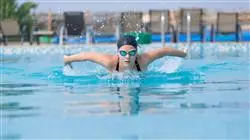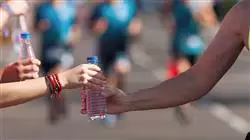University certificate
Scientific endorser

Scientific endorser

The world's largest faculty of sports science”
Introduction to the Program
A comprehensive and 100% online program, exclusive to TECH, with an international perspective supported by our membership with The Chartered Association of Sport and Exercise Sciences”

High Performance in Sports requires meticulous preparation and a deep understanding of the sciences applied to training. In this regard, optimizing athletic performance depends not only on talent or discipline but also on the application of evidence-based methodologies. Therefore, the constant evolution in areas such as physiology, biomechanics, nutrition, and sports psychology has transformed the way athletes achieve their full potential. All of this has created the need for specialists capable of integrating this knowledge, which is essential for excellence in the competitive realm.
For this reason, TECH has developed this comprehensive Postgraduate Masters Degree in High Performance in Sports. The program will be delivered 100% online, allowing access to cutting-edge content without the limitations of traditional learning. With a flexible methodology and innovative resources, it will be possible to combine training with other professional responsibilities, ensuring continuous access to updated materials and real-world case studies. Moreover, the ability to study from anywhere in the world removes geographical barriers and facilitates specialization in a dynamic environment tailored to the needs of the sports sector.
As such, TECH will offer an innovative academic proposal that addresses the current demands of high performance, preparing professionals to face the challenges of elite sports with the best available tools. Additionally, specialists will have exclusive access to 10 unique Masterclasses, delivered by a renowned International Guest Director.
Additionally, thanks to the membership in The Chartered Association of Sport and Exercise Sciences (CASES), students will gain access to exclusive educational resources, discounts on events and specialized publications, and practical benefits such as professional insurance. They will also be able to join an active community, participate in committees, and obtain accreditations that enhance their development, visibility, and professional prospects in the field of sports and exercise science.
You will have access to updated content and benefit from exclusive Masterclasses led by a renowned International Guest Director”
This Masters Degree in High Performance in Sports contains the most complete and up-to-date University program on the market. Its most notable features are:
- The development of practical cases presented by experts in Sports
- The graphic, schematic, and practical contents with which they are created, provide scientific and practical information on the disciplines that are essential for professional practice
- Practical exercises where the self-assessment process can be carried out to improve learning
- Special emphasis on innovative methodologies in Sports Preparation
- Theoretical lessons, questions to the expert, debate forums on controversial topics, and individual reflection work
- Content that is accessible from any fixed or portable device with an Internet connection
You will learn to apply statistics in the analysis of athletic performance and make informed decisions. Make a difference in Sports!"
The program includes a faculty of professionals from the sports field, who bring their practical experience to the program, as well as recognized specialists from leading societies and prestigious universities.
The multimedia content, developed with the latest educational technology, will provide the professional with situated and contextual learning, i.e., a simulated environment that will provide an immersive learning experience designed to prepare for real-life situations.
This program is designed around Problem-Based Learning, whereby the student must try to solve the different professional practice situations that arise throughout the program. For this purpose, the professional will be assisted by an innovative interactive video system created by renowned and experienced experts.
You will perfect your knowledge in strength training and develop effective programs to improve athletes' physical conditioning"

You will specialize in speed training and design plans to maximize the explosiveness and agility of athletes. You will take training to the next level!"
Why study at TECH?
TECH is the world’s largest online university. With an impressive catalog of more than 14,000 university programs available in 11 languages, it is positioned as a leader in employability, with a 99% job placement rate. In addition, it relies on an enormous faculty of more than 6,000 professors of the highest international renown.

Study at the world's largest online university and guarantee your professional success. The future starts at TECH”
The world’s best online university according to FORBES
The prestigious Forbes magazine, specialized in business and finance, has highlighted TECH as “the world's best online university” This is what they have recently stated in an article in their digital edition in which they echo the success story of this institution, “thanks to the academic offer it provides, the selection of its teaching staff, and an innovative learning method aimed at educating the professionals of the future”
A revolutionary study method, a cutting-edge faculty and a practical focus: the key to TECH's success.
The most complete study plans on the university scene
TECH offers the most complete study plans on the university scene, with syllabuses that cover fundamental concepts and, at the same time, the main scientific advances in their specific scientific areas. In addition, these programs are continuously being updated to guarantee students the academic vanguard and the most in-demand professional skills. In this way, the university's qualifications provide its graduates with a significant advantage to propel their careers to success.
TECH offers the most comprehensive and intensive study plans on the current university scene.
A world-class teaching staff
TECH's teaching staff is made up of more than 6,000 professors with the highest international recognition. Professors, researchers and top executives of multinational companies, including Isaiah Covington, performance coach of the Boston Celtics; Magda Romanska, principal investigator at Harvard MetaLAB; Ignacio Wistumba, chairman of the department of translational molecular pathology at MD Anderson Cancer Center; and D.W. Pine, creative director of TIME magazine, among others.
Internationally renowned experts, specialized in different branches of Health, Technology, Communication and Business, form part of the TECH faculty.
A unique learning method
TECH is the first university to use Relearning in all its programs. It is the best online learning methodology, accredited with international teaching quality certifications, provided by prestigious educational agencies. In addition, this disruptive educational model is complemented with the “Case Method”, thereby setting up a unique online teaching strategy. Innovative teaching resources are also implemented, including detailed videos, infographics and interactive summaries.
TECH combines Relearning and the Case Method in all its university programs to guarantee excellent theoretical and practical learning, studying whenever and wherever you want.
The world's largest online university
TECH is the world’s largest online university. We are the largest educational institution, with the best and widest online educational catalog, one hundred percent online and covering the vast majority of areas of knowledge. We offer a large selection of our own degrees and accredited online undergraduate and postgraduate degrees. In total, more than 14,000 university degrees, in eleven different languages, make us the largest educational largest in the world.
TECH has the world's most extensive catalog of academic and official programs, available in more than 11 languages.
Google Premier Partner
The American technology giant has awarded TECH the Google Google Premier Partner badge. This award, which is only available to 3% of the world's companies, highlights the efficient, flexible and tailored experience that this university provides to students. The recognition as a Google Premier Partner not only accredits the maximum rigor, performance and investment in TECH's digital infrastructures, but also places this university as one of the world's leading technology companies.
Google has positioned TECH in the top 3% of the world's most important technology companies by awarding it its Google Premier Partner badge.
The official online university of the NBA
TECH is the official online university of the NBA. Thanks to our agreement with the biggest league in basketball, we offer our students exclusive university programs, as well as a wide variety of educational resources focused on the business of the league and other areas of the sports industry. Each program is made up of a uniquely designed syllabus and features exceptional guest hosts: professionals with a distinguished sports background who will offer their expertise on the most relevant topics.
TECH has been selected by the NBA, the world's top basketball league, as its official online university.
The top-rated university by its students
Students have positioned TECH as the world's top-rated university on the main review websites, with a highest rating of 4.9 out of 5, obtained from more than 1,000 reviews. These results consolidate TECH as the benchmark university institution at an international level, reflecting the excellence and positive impact of its educational model.” reflecting the excellence and positive impact of its educational model.”
TECH is the world’s top-rated university by its students.
Leaders in employability
TECH has managed to become the leading university in employability. 99% of its students obtain jobs in the academic field they have studied, within one year of completing any of the university's programs. A similar number achieve immediate career enhancement. All this thanks to a study methodology that bases its effectiveness on the acquisition of practical skills, which are absolutely necessary for professional development.
99% of TECH graduates find a job within a year of completing their studies.
Master's Degree in High Performance in Sports
At the Faculty of Sports Sciences of TECH Global University we have a Master's Degree in High Performance in Sports, created with the purpose of our students mastering with certainty the most recent training methods. To this end, TECH's experienced team of teachers provides knowledge related to exercise physiology, biochemistry and biomechanics applied to sport, nutrition to increase performance and the use of statistics to monitor the athlete's progress. In this way, the professional will be perfectly qualified to perform in both timed and paced sports and situational sports.
Use of technologies applied to sports performance
One of the strongest aspects of this postgraduate degree is the study of new technologies to increase the athlete's results. In this sense, TECH students will learn to use and interpret the data obtained by each device, giving way to making better decisions regarding training programming. Some concepts such as thermodynamics, bioenergetics, metabolism, neuromuscular adaptations, nutritional status, fatigue, strength or vector training, establish the conceptual basis that students will find within the ten thematic modules of the Master in our Higher Education Institution.







